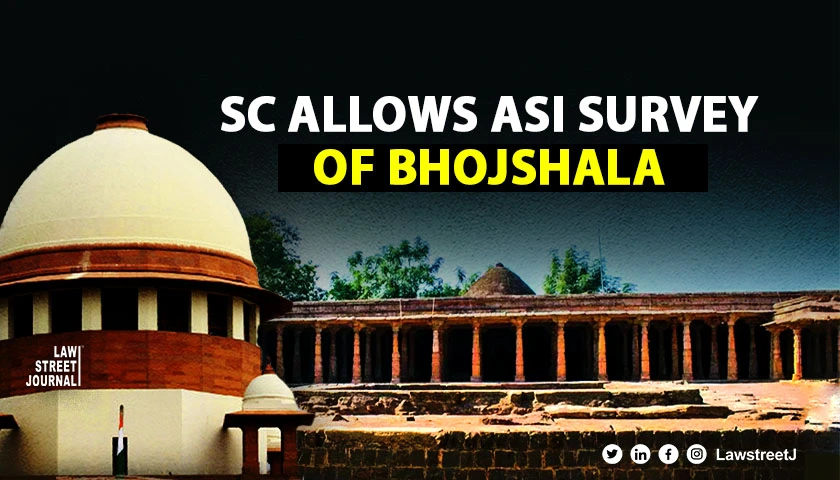NEW DELHI: The Supreme Court on Monday refused to stay a survey being conducted by the Archaeological Survey of India since March 23 to determine the religious character of the 11 th Century's Bhojshala complex at Dhar district in Madhya Pradesh.
A team of ASI have already begun the survey of the disputed site in tribal dominated Dhar district after directions were issued by the MP High Court to confirm whether the site belongs to the Hindus or the Muslims. The Hindus claim that the site is a temple of Goddess Sarswati while the Muslims believe it to be the 'Kamal Maula Mosque'.
The survey is being conducted under the surveillance of sixty cameras amid a strict ban on the entry of people inside the banquet hall. The Indore Bench of Madhya Pradesh High Court had on March 11 ordered that a scientific survey of Dhar's Bhojshala should be conducted by ASI within three weeks, on the lines of Gyanvapi mosque.
Acting on a plea by the Muslim side, a bench of Justices Hrishikesh Roy and Prashant Kumar Mishra sought a response from Centre and state government, and the Hindu side in the matter.
The court, however, directed that no physical excavation should be done which could alter the appearance of the structure or cause any damage to the structure.
The bench also said that no action should be taken on the outcome of the ASI survey without the court's permission.
On March 22, the Supreme Court had declined to entertain a plea challenging an order passed by the Madhya Pradesh High Court directing the ASI to survey Bhojshala, a protected 11th-century monument. The high court passed the order on March 11.
Maulana Kamaluddin Welfare Society earlier moved the apex court seeking an urgent hearing saying the ASI survey would begin on March 23. They claimed that the survey will damage the protected monument.
In May 2022, Hindu Front for Justice filed a petition in the high court against namaz at Bhojshala. The Hindu side had urged the court to issue a direction to conduct a survey to determine the real religious character of Bhojshala.
The high court allowed ASI to survey the monument based on evidence the petitioners presented in the form of coloured photographs of pillars where Sanskrit verses are written.

















